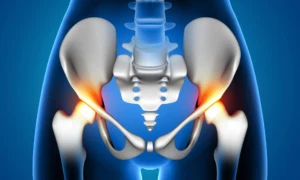Maintaining optimal semen quality is crucial for couples aspiring to start a family, and it plays a significant role in fertility. Several factors can influence semen quality, ranging from lifestyle choices to overall health. In this article, we’ll explore evidence-based strategies to improve semen quality in men, drawing insights from clinical studies.
1. Nutrition Matters:
Scientific studies emphasize the importance of a balanced diet in enhancing semen quality. Incorporating essential nutrients such as zinc, selenium, and antioxidants has been linked to improved sperm parameters. A study published in the “Journal of Andrology” (2012) highlighted the positive correlation between antioxidant-rich diets and semen quality.
2. Stay Hydrated:
Dehydration can adversely affect semen concentration and overall sperm health. Research published in the “American Journal of Epidemiology” (2016) suggests that maintaining adequate hydration positively influences semen volume and sperm motility.
3. Exercise Regularly:
Engaging in regular physical activity has been associated with better semen quality. A study in the “Journal of Exercise Rehabilitation” (2018) found a positive correlation between moderate-intensity exercise and sperm parameters. However, excessive exercise may have the opposite effect, so moderation is key.
4. Manage Stress:
Chronic stress can contribute to reduced semen quality. Scientific evidence, including a study in “Fertility and Sterility” (2014), suggests that stress management techniques, such as mindfulness and meditation, may positively impact sperm parameters.
5. Limit Alcohol and Tobacco:
Excessive alcohol consumption and tobacco use have been linked to decreased semen quality. Multiple studies, including one in “Fertility and Sterility” (2016), underline the importance of moderating alcohol intake and quitting smoking for improved sperm health.
6. Maintain a Healthy Weight:
Obesity has been associated with impaired semen quality. Research published in “Human Reproduction” (2012) indicates that maintaining a healthy weight through a balanced diet and regular exercise positively influences sperm parameters.
7. Adequate Sleep:
Quality sleep is crucial for overall health, including reproductive health. A study in “Sleep” (2013) found a correlation between sleep disturbances and reduced semen quality. Aim for 7-9 hours of quality sleep per night to support reproductive well-being.
8. Supplements and Herbal Remedies:
Certain supplements, such as Coenzyme Q10 and Folate, have shown promise in improving semen quality. Additionally, herbal remedies like Ashwagandha have been linked to increased sperm count and motility. However, it’s essential to consult with a healthcare professional before incorporating these into your routine.
Conclusion:
Improving semen quality involves adopting a holistic approach that encompasses dietary choices, lifestyle modifications, and stress management. By integrating evidence-based strategies from clinical studies, men can take proactive steps to enhance their reproductive health. Remember, individual responses may vary, so it’s crucial to consult with a healthcare provider for personalized advice tailored to your specific needs.








































